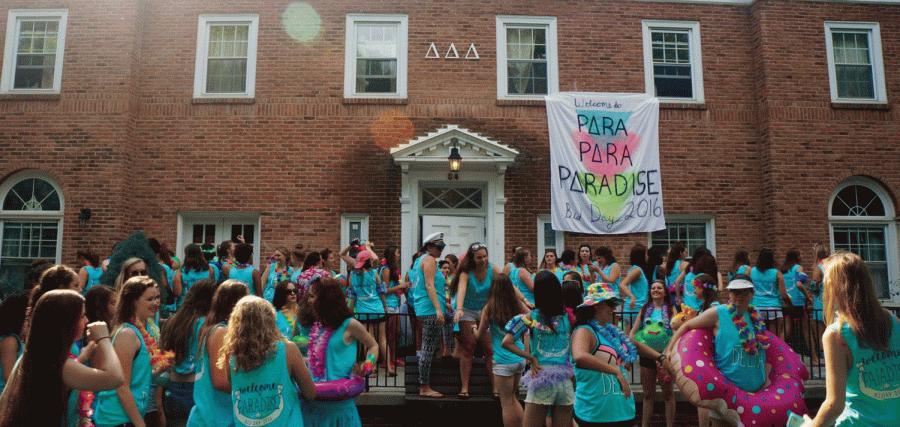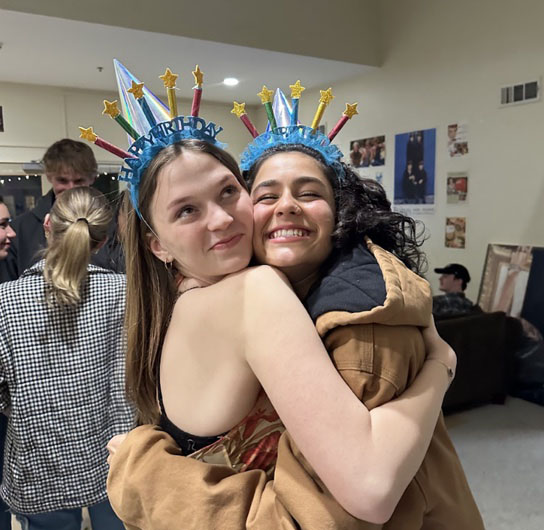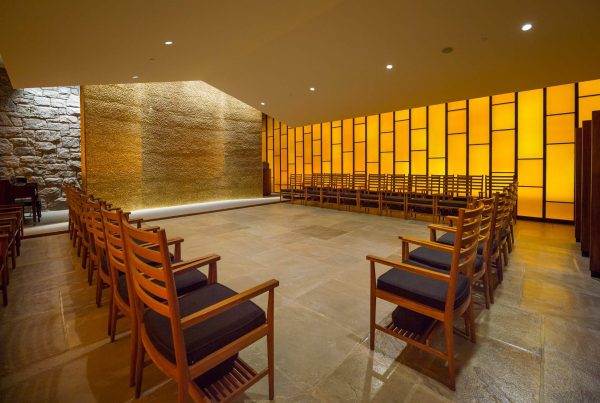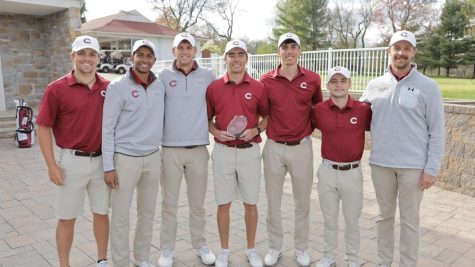Greek Letter Organizations Recruit New Members
This past week, many Colgate students participated in the formal sorority and fraternity recruitment process. During recruitment, eligible, non-affiliated students have the opportunity to visit Greek houses and become more familiar with the various Greek letter organizations at Colgate. The Colgate website describes the recruitment process as one of “mutual selection.” Fraternity and sorority members invite individuals to join their organization, while potential new members (PNMs) then select the chapter that suits them best.
For sorority recruitment, Delta Delta Delta, Gamma Phi Beta and Kappa Kappa Gamma hosted gatherings at their respective houses, giving female PNMs an opportunity to meet members of each sorority.
Colgate’s five fraternities on campus, Beta Theta Pi, Delta Upsilon, Phi Delta Theta, Phi Kappa Tau and Theta Chi, had formal recruitment for male students interested in joining Greek life as well.
Senior Conor Chabot, President of the Interfraternity Council, explained the timeline and format of formal fraternity recruitment and discussed the changes the fraternity scene at Colgate will undergo in the near future.
“The [recruitment] process went very well this year,” Chabot said. “We had more potential new members than in years past and were able to accommodate a higher number [of men] with bids compared to most years.”
Chabot also explained what the fraternity recruitment process entails.
“Potential new members attended open houses with food, events such as the ‘car smash’ at Phi Delta Theta and backyard sports and games,” Chabot said. “They then attended a ‘Smokescreen’ dinner, a formal dinner at each house, at which they enjoyed a formal yet casual night getting to know the brothers of each house.”
Chabot anticipates increased student involvement in Greek life in the coming years.
“With the expansion plan for fraternities and sororities in the works, more fraternities will colonize in the near future and we should be able to accommodate all students who rush with bids,” Chabot said.
This year, Bilal Badruddin began his first year as the Interim Director of Fraternity and Sorority affairs. After finishing recruitment this week, Badruddin reflected on the differing processes for both sorority and fraternity recruitment.
“Sorority recruitment is a lot more structured, and so if you look at both of them, that process looks different, and so I’m working to even out what that looks like,” Badruddin said. “I think for next year, I am hoping to structure [the process] even more. Fraternity recruitment has not had a lot of structure and so I’m hoping to slowly get there. It is a process, and we took a couple of steps this year, and next year I will probably further that.”
Badruddin is satisfied with the outcome of recruitment in terms of the pledge class sizes this year for sororities and fraternities at Colgate.
“I haven’t been in this position in past years, but based off of the numbers I have seen, I am happy with the way recruitment went,” Badruddin said. “All of our chapters got solid chapter sizes, in terms of new member classes.”
Sorority recruitment looks entirely different, beginning with the way that PNMs are led through the process. They are organized into randomly assigned groups that are paired with a recruitment counselor (RC). RCs are members of the three sororities who have temporarily disaffiliated from their respective organizations to maintain impartiality and to support their PNMs.
Senior Charlotte Boyle shed light on the her duties as an RC during the recruitment process.
“As an RC, I acted as a neutral guide and unbiased source of support for a group of girls going through the recruitment process,” Boyle said. “PNMs could talk to me candidly about their experiences and what they were feeling. It can be a really taxing week, so I tried my best to reduce their anxiety and always be available to answer any questions.”
Senior Julia Cooper, another RC, enjoyed getting to know her PNMs but also acknowledged that there were some difficult parts of the process.
“One thing that was hard for me to watch was the disappointment that the women felt when they were released from the recruitment process,” Cooper said. “Recruitment can be such a numbers game; I’m sure none of the house women wanted to release any PNMs. In a perfect world, everyone would reach the end of the process with a bid to join a house.”
Each night of recruitment focused on a different aspect of Greek life, and socializing events called “parties” can range from 20 minutes to one hour.
On the first night, “Go Greek Night,” PNMs visited each of the three sororities, learning about what it means to participate in Greek life on campus. The second night is “Sisterhood Night,” during which each sorority discusses the unique perspectives of their sisterhoods. On the third night, “Philanthropy Night,” through a mutual selection process, PNMs return to houses to learn about their various philanthropic endeavors. “Preference Night,” the final night of recruitment, is typically the most formal night, and an opportunity for affiliated women to discuss their own experiences within the chapters.
Efforts were made to make the process more transparent and open, with senior Larissa Grijalva leading the charge to bring more information to women of color.
“Being a woman of color on Colgate’s campus is not easy, let alone being a woman of color in a predominantly white Greek organization,” Grijalva said. “The Greek system is very exclusive and in many ways violent towards specific groups on campus. However, with that in mind, a lot of good can come from being affiliated.”
Grijalva hosted an event to talk to PNMs about some of the challenges and rewards, with the hope that this talk could lead to further conversation.
“As a woman of color specifically, being affiliated has brought a lot of emotion and unease in my life, but it has also provided me with incredible friendships and experiences I would otherwise not have been able to have,” Grijalva said. “Joining a Greek organization was a personal choice I made my sophomore year after a few OUS (Office of Undergraduate Studies) seniors held a similar event in which they encouraged us to go through recruitment and assured us that we would have a network of support. I wanted this event to provide space for honest conversations about the Greek system.”
Seniors Natalie Bryt and Stacey Stein served as
Panhellenic Vice Presidents of Recruitment and oversaw the formal recruitment process. Bryt expressed her pleasure with the outcome of the week.
“Panhellenic is so pleased to welcome all the new members to the amazing sororities on campus,” Bryt said. “And we can’t wait to see what this year has in store for Greek life.”










